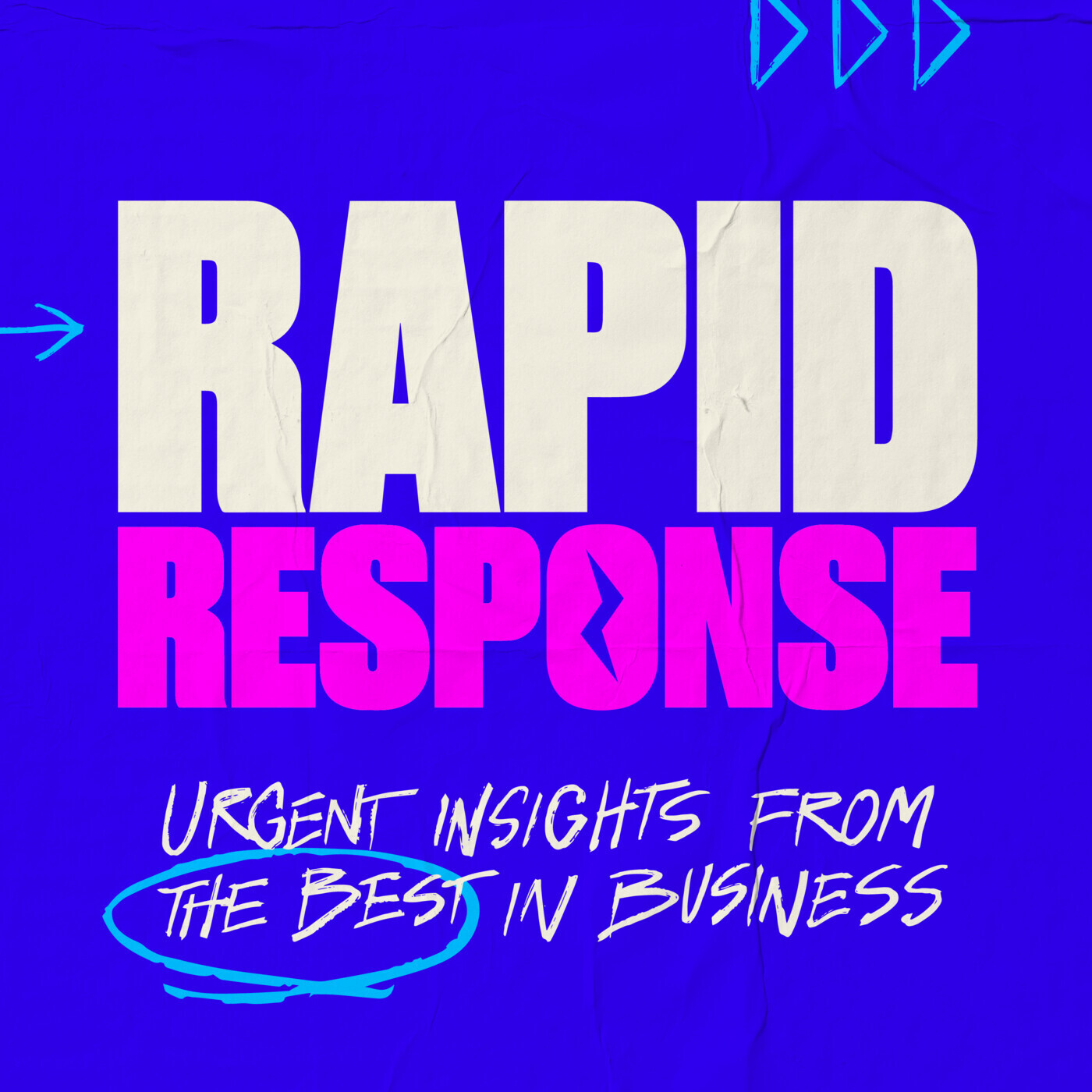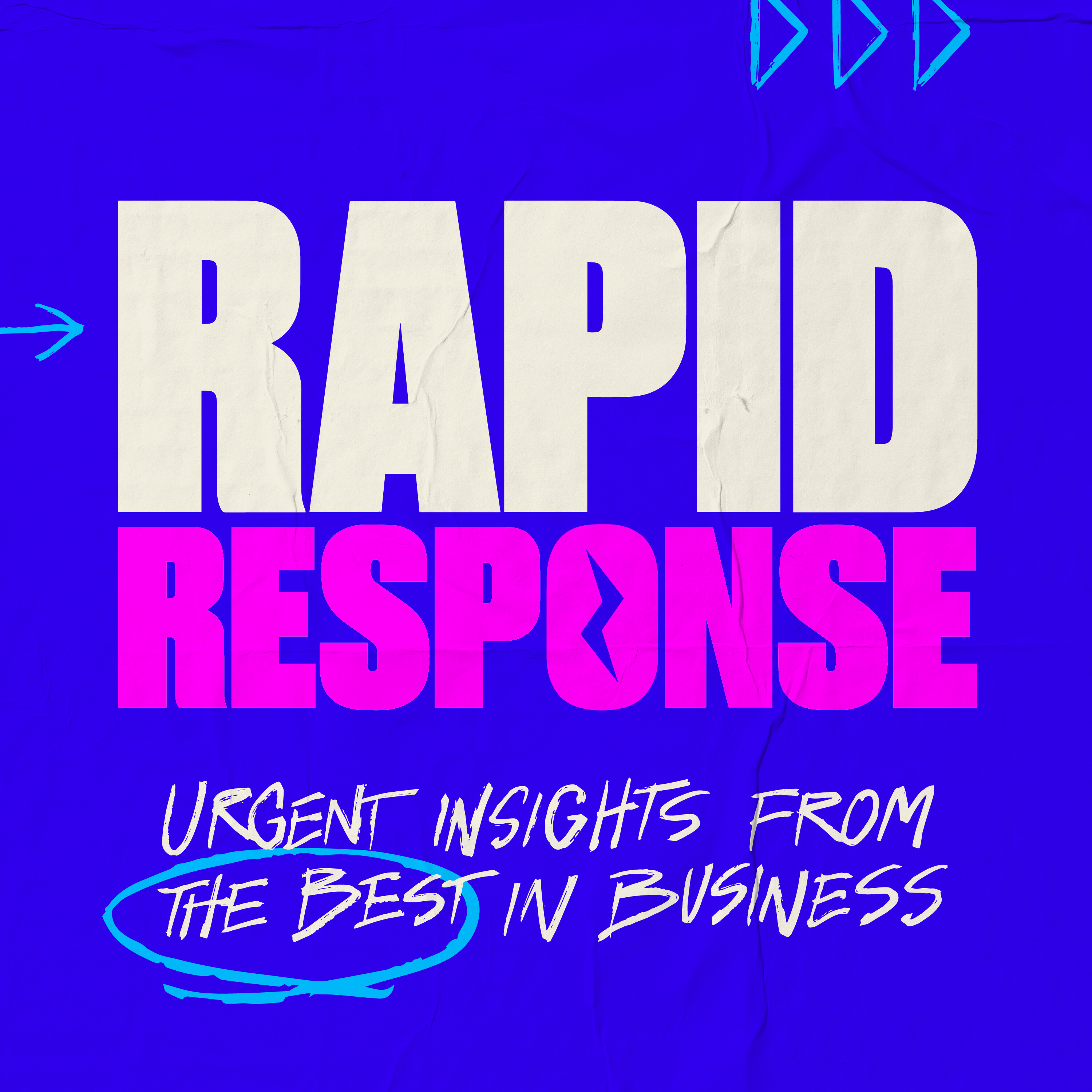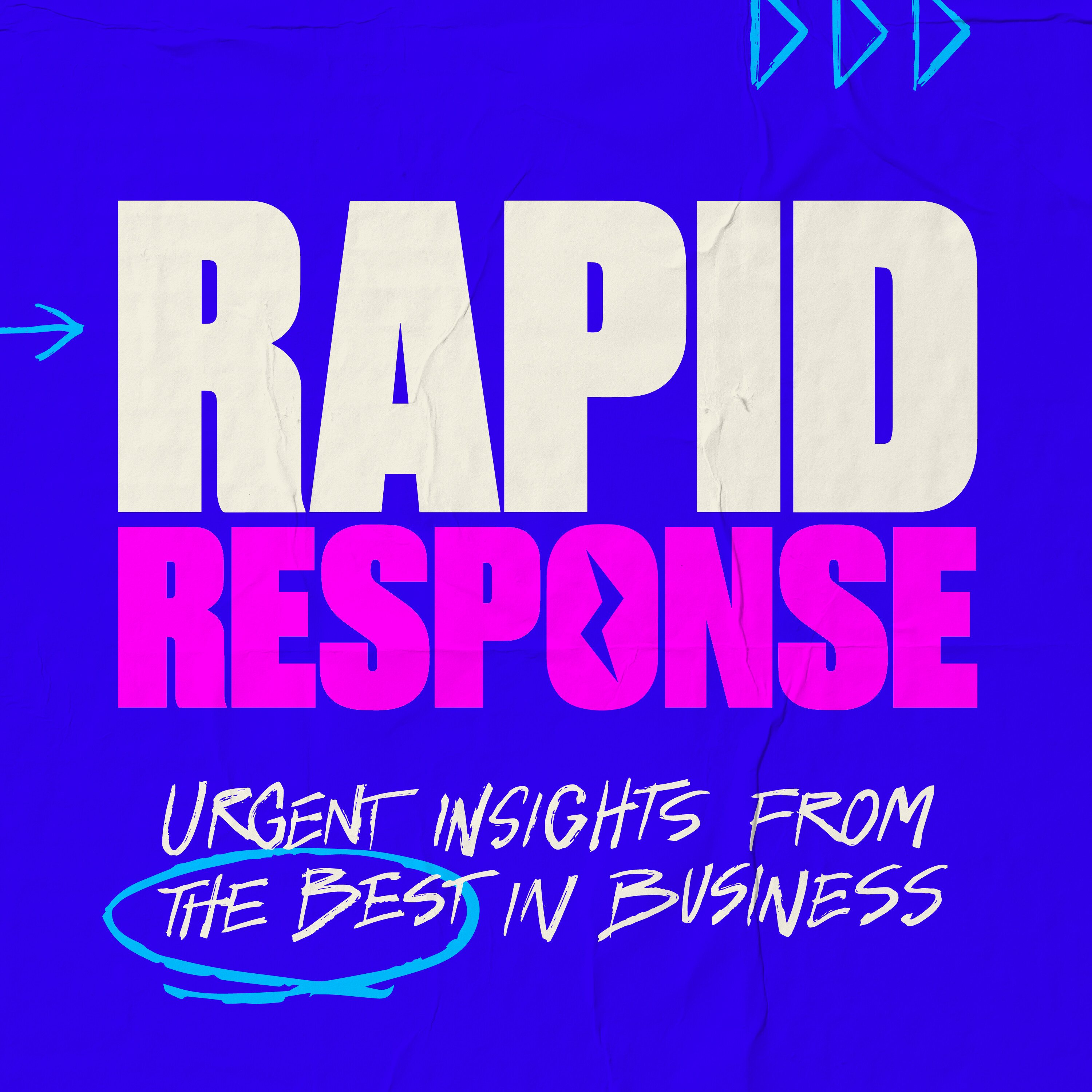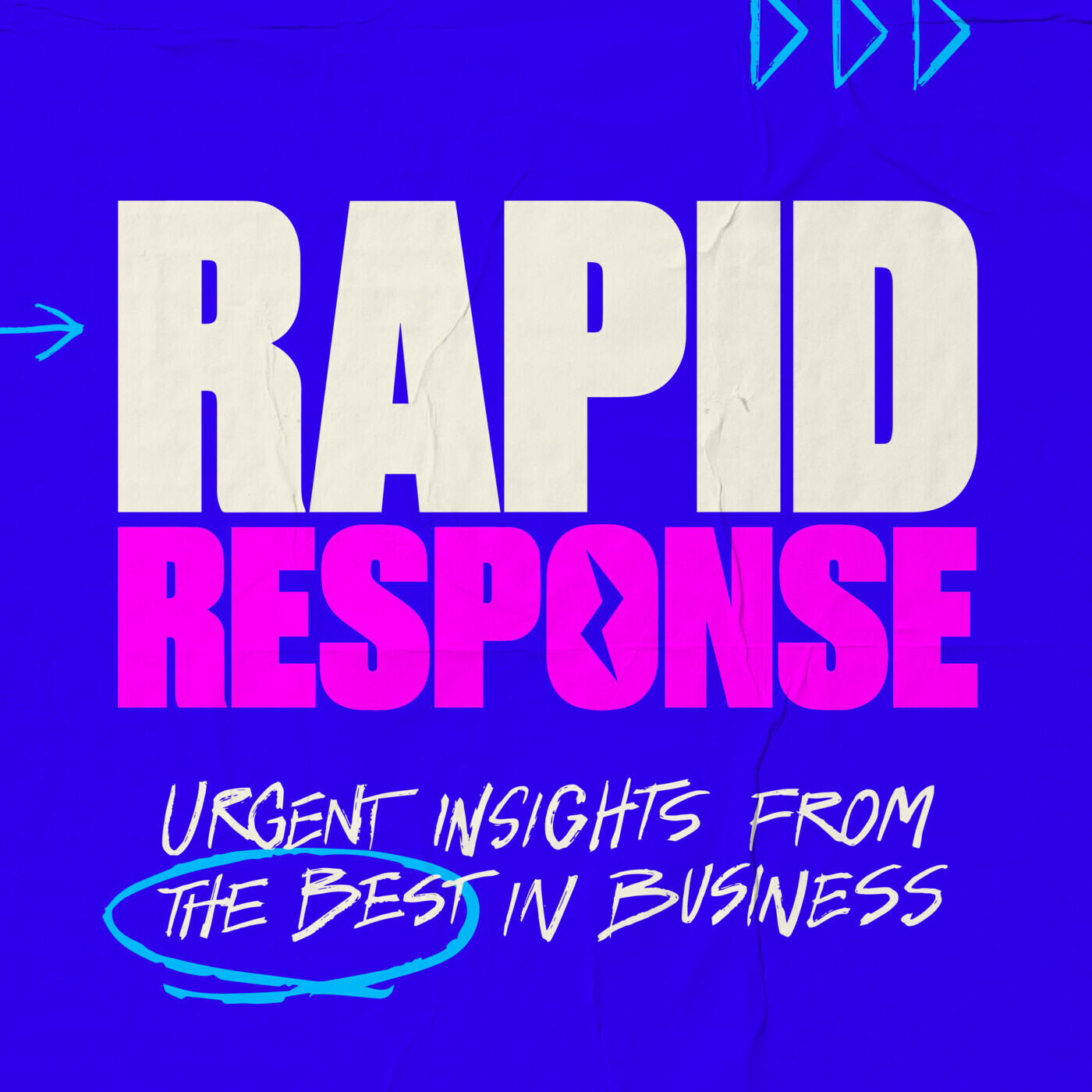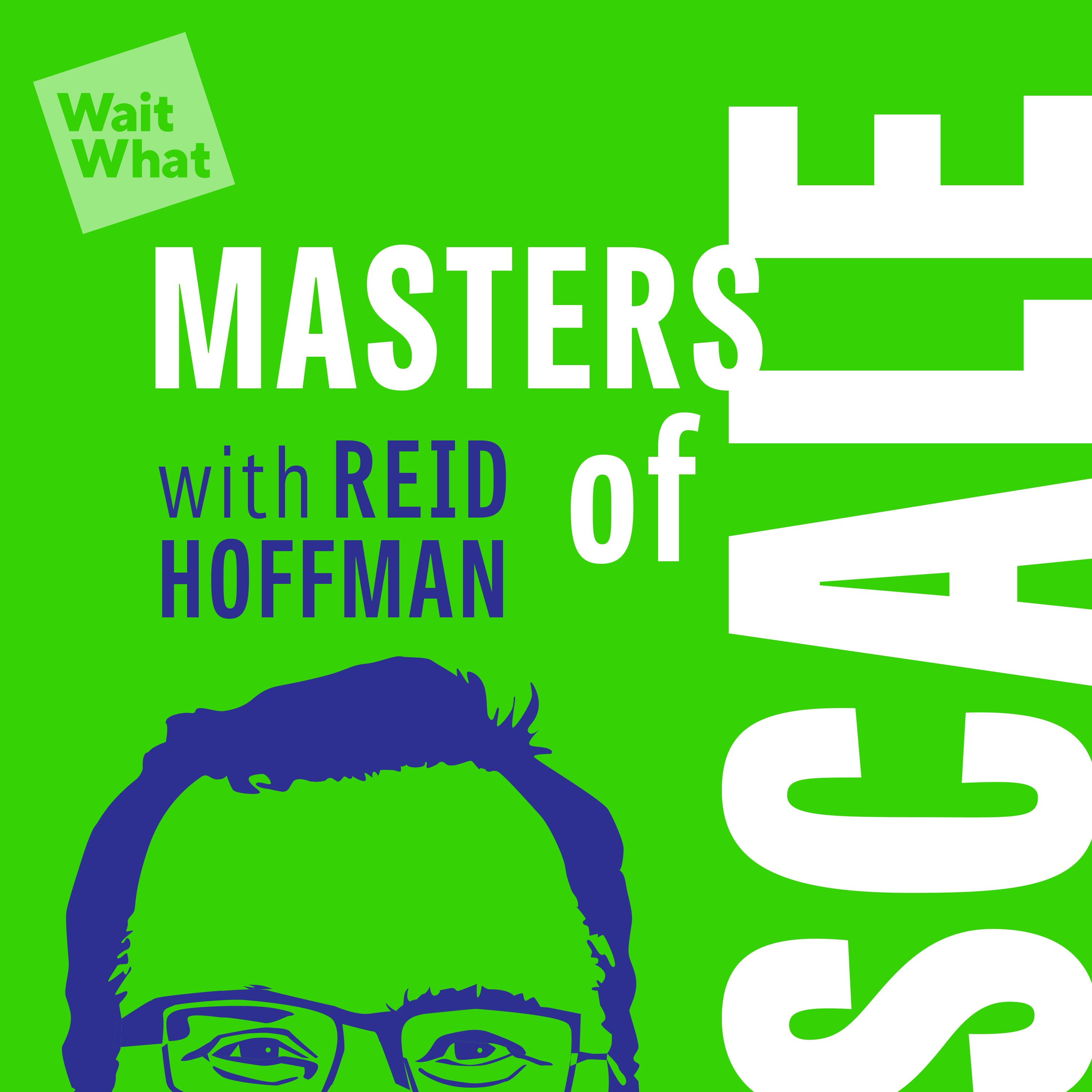
May 9, 2024 • 27min
Trendspotting with Ron Shaich: Panera, Cava, and Beyond
Masters of Scale

Key Takeaways
- Spotting trends and customer needs is crucial for business success. Ron Shaich observed customers using baguettes to make sandwiches, leading him to focus on sandwiches at Au Bon Pain and later Panera.
- Fast casual dining emerged as a new category between fast food and fine dining, offering higher quality food in a relaxed setting. Panera became the "poster child" for this trend.
- Listening, empathy and pattern recognition are key skills for identifying emerging trends and consumer needs before they become mainstream.
- Making difficult strategic decisions is necessary for growth, even if painful. Shaich sold off Au Bon Pain to focus fully on growing Panera.
- Transforming a business requires perseverance through challenges. Shaich faced doubts and pressure from investors during Panera's digital transformation.
- Regular reflection and long-term planning help align business and personal goals. Shaich reviews his 5-year vision quarterly.
- Business can be a powerful vehicle for social change. Panera led industry shifts toward healthier ingredients and transparency.
Introduction
Ron Shaich is a pioneer of the fast casual restaurant concept and former leader of Panera Bread. He built Au Bon Pain from a single cookie store into a publicly traded company, then transformed St. Louis Bread Company into Panera Bread, growing it to over 2,000 locations. Shaich is credited with developing the fast casual dining category, offering higher quality food than fast food in a relaxed setting. His career demonstrates the power of spotting consumer trends early and having the conviction to pursue them, even when facing challenges.
Topics Discussed
Early Career and Au Bon Pain (07:16)
Ron Shaich's journey in the food industry began unexpectedly while he was still an undergraduate student. After a negative experience at a convenience store, he started a non-profit student-run store on campus. This experience sparked his interest in retail and business as a way to create change.
After graduating, Shaich opened a cookie store in Boston. He soon realized customers weren't buying cookies before noon, so he added French baked goods from Au Bon Pain. Observing customers using baguettes to make sandwiches, Shaich recognized an opportunity:
"You didn't have to have a Harvard MBA to understand that the product was not the croissant and bread. The product was what you could do with the croissant and bread and make a sandwich."
- Shaich merged his profitable cookie store with the struggling Au Bon Pain bakery chain
- He partnered with Louis Kane, who had valuable real estate connections
- Together they grew Au Bon Pain from 3 to 80 locations by 1990
Developing the Fast Casual Concept (12:23)
In the early 1990s, Shaich observed a shift in consumer preferences around dining out. He spent two years traveling the country to understand this trend:
"What I discovered is one out of every three consumers would walk into fast food and hold their noses, and nobody had an answer, because what were the alternatives at that time, fine dining and fast food."
- Shaich envisioned a new category between fast food and fine dining
- It would offer real food in engaging environments, served by caring staff
- This concept became known as "fast casual" dining
- Au Bon Pain acquired St. Louis Bread Company in 1993, which became the prototype for Panera Bread
Trend Spotting and Pattern Recognition (13:57)
Shaich attributes his ability to spot emerging trends to several key skills:
- Listening and empathy - truly understanding customer needs and motivations
- Searching for patterns - identifying broader trends from individual data points
- Curiosity - constantly seeking to understand "why" things are happening
- Looking beyond the noise - focusing on deeper trends rather than daily chatter
"The greatest joy to me as a business builder is when I have figured something out the rest of the world hasn't yet."
Focusing on Panera and Difficult Decisions (17:44)
By 1999, Shaich realized that Panera (formerly St. Louis Bread Company) had the most potential among Au Bon Pain's divisions. This led to a difficult decision:
- Sold off the majority of Au Bon Pain to focus entirely on Panera
- Moved to St. Louis to become CEO of Panera Bread
- Described it as "the worst year and a half of my life" due to emotional attachments
"These were people I loved. Au Bon Pain was my first child."
The decision paid off, as Panera grew rapidly:
- Expanded from 150+ locations to over 1000 in 5 years
- Spread to more than 30 states
Panera as a "Challenger Brand" (19:40)
Shaich positioned Panera as a leader in healthier, more transparent food options:
- Among the first major chains to remove trans fats
- Posted complete nutritional information in 2010, ahead of industry trends
- Introduced antibiotic-free chicken
- Removed artificial flavors, sweeteners, and preservatives
"We opened up the marketplace. We created enough scale, talk about masters of scale as a top ten company when we did it. So I know we made a huge difference in the world."
Panera Cares Experiment (21:06)
After stepping down as CEO in 2010, Shaich launched Panera Cares, a pay-what-you-can concept:
- Opened 5 locations across the US
- No set prices - customers could pay more or less than retail price
- On average, people paid 80% of retail price
- Served millions of people over several years
"I think the thesis that we wanted to prove what is the nature of humanity was actually good. I've come to believe it that business is one of the most powerful ways for social change."
Returning to Transform Panera (22:53)
Shaich returned as CEO in 2013 to lead a major transformation of Panera:
- Focused on digital tools, loyalty program, and clean food initiatives
- Faced challenges and pressure from activist investors
- Felt immense responsibility to employees who believed in the vision
"When you tell yourself the truth, when you actually figure out what matters, and then you get it done, this is really hard and difficult. And I wanted to speak about the real pain of it, the real uncertainty along the way."
The transformation was ultimately successful:
- Sales increased dramatically by 2016
- Panera was sold to JAB Holdings for $7.5 billion in 2017
Long-Term Vision and Planning (25:30)
Shaich emphasizes the importance of regular reflection and long-term planning:
- Annually reviews his 5-year vision for personal and professional goals
- Examines progress quarterly
- Applies this approach to business planning as well
"Every year, I would sit down and ask myself, literally, where do I want to be in my life in five years relative to my relationship with my body, my relationship with my work, my relationships with my family and the people that matter to me."
Leadership Philosophy (27:44)
Shaich views leadership as similar to being a spiritual guide:
- Helping people understand the organization's past, present, and future
- Aligning all stakeholders (employees, investors, suppliers) around a shared vision
- Viewing the organization as an ongoing "movie" rather than a static snapshot
"My goal is to get everybody in my organization, every constituency, whether it be capital or team members or suppliers, every one of the stakeholders aligned against the vision of a better future for this organization."
Conclusion
Ron Shaich's career demonstrates the power of identifying emerging consumer trends and having the conviction to pursue them, even when facing challenges. His development of the fast casual dining category with Panera Bread revolutionized the restaurant industry. Shaich's approach emphasizes:
- Listening closely to customers and observing their behavior
- Recognizing patterns that point to larger trends
- Making difficult strategic decisions to capitalize on opportunities
- Using business as a vehicle for positive social change
- Regularly reflecting on long-term vision and goals
- Aligning stakeholders around a shared vision for the future
By combining keen trend-spotting abilities with strategic decision-making and a commitment to making a positive impact, Shaich built Panera into a multi-billion dollar brand that changed how Americans dine out. His story offers valuable lessons for entrepreneurs and business leaders looking to identify the next big opportunity in their industries.

